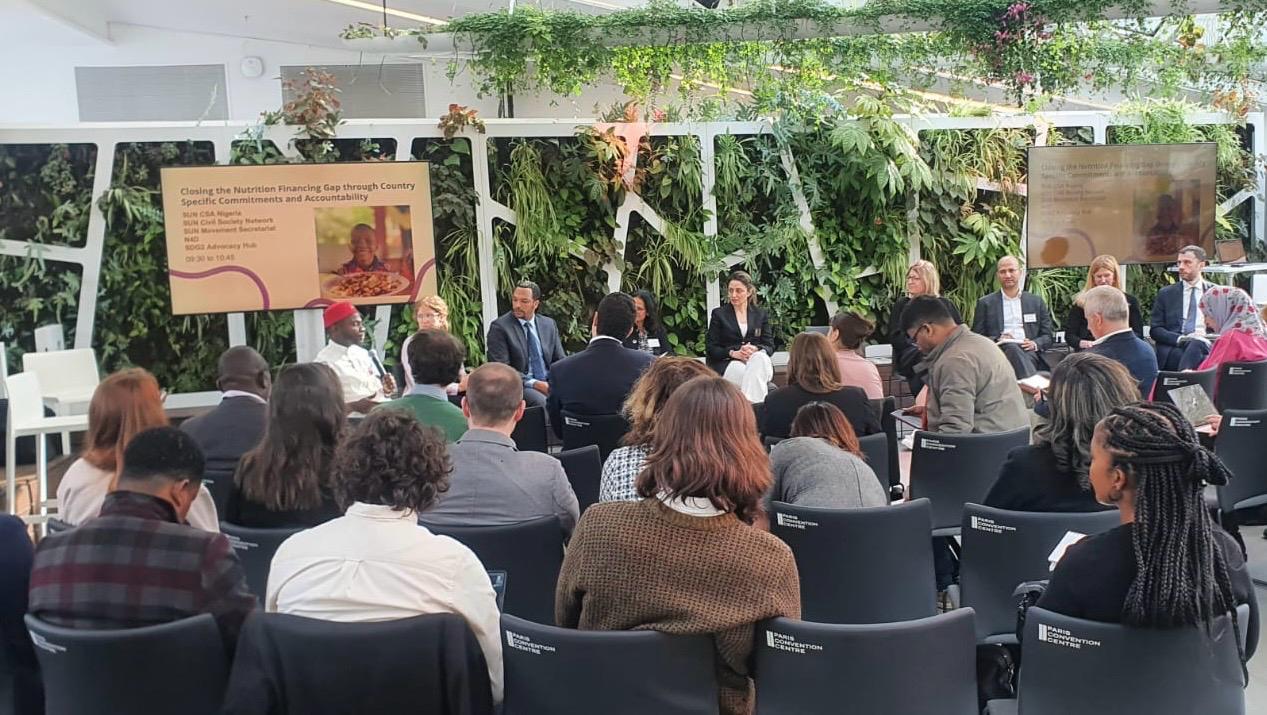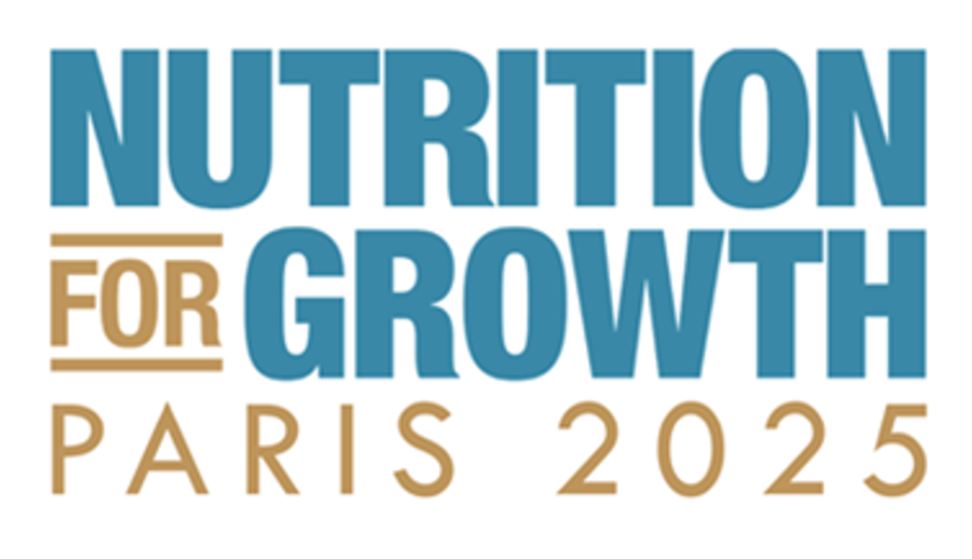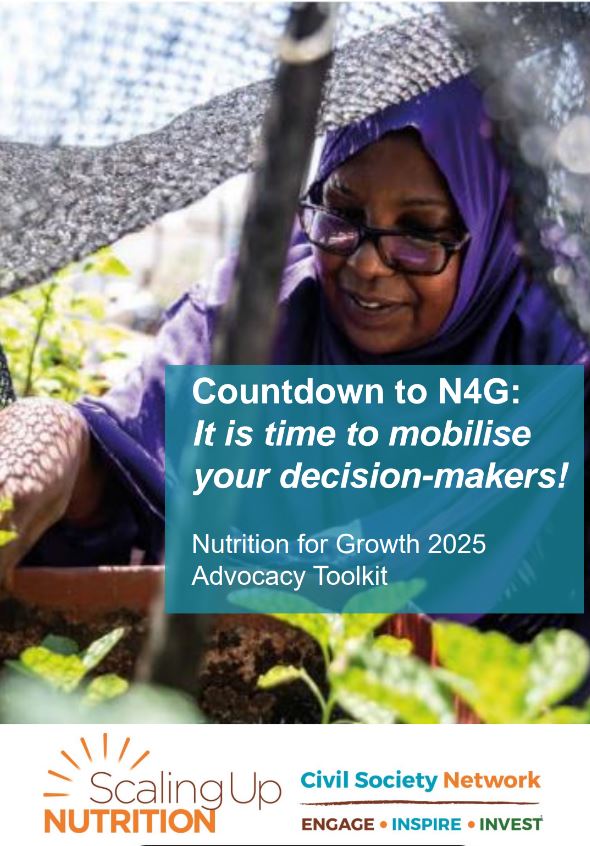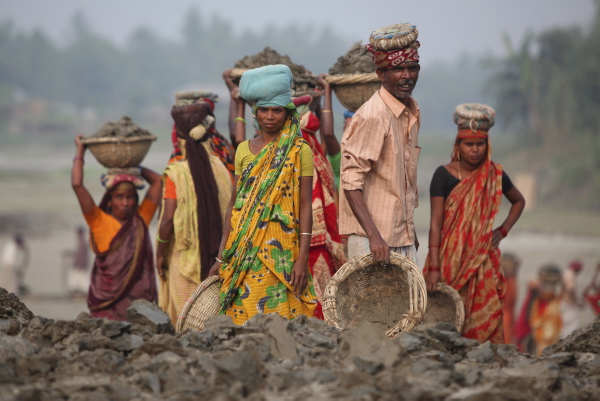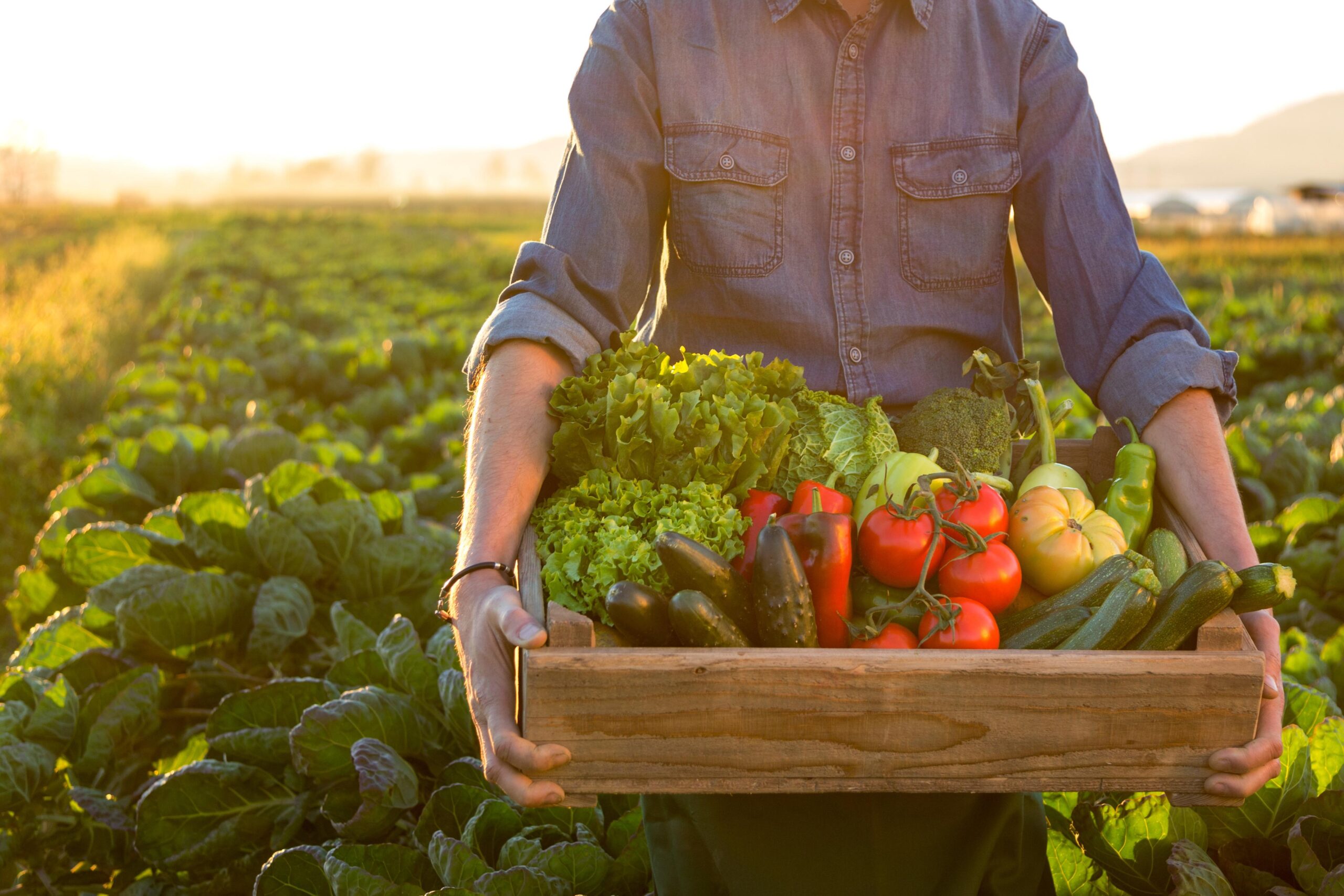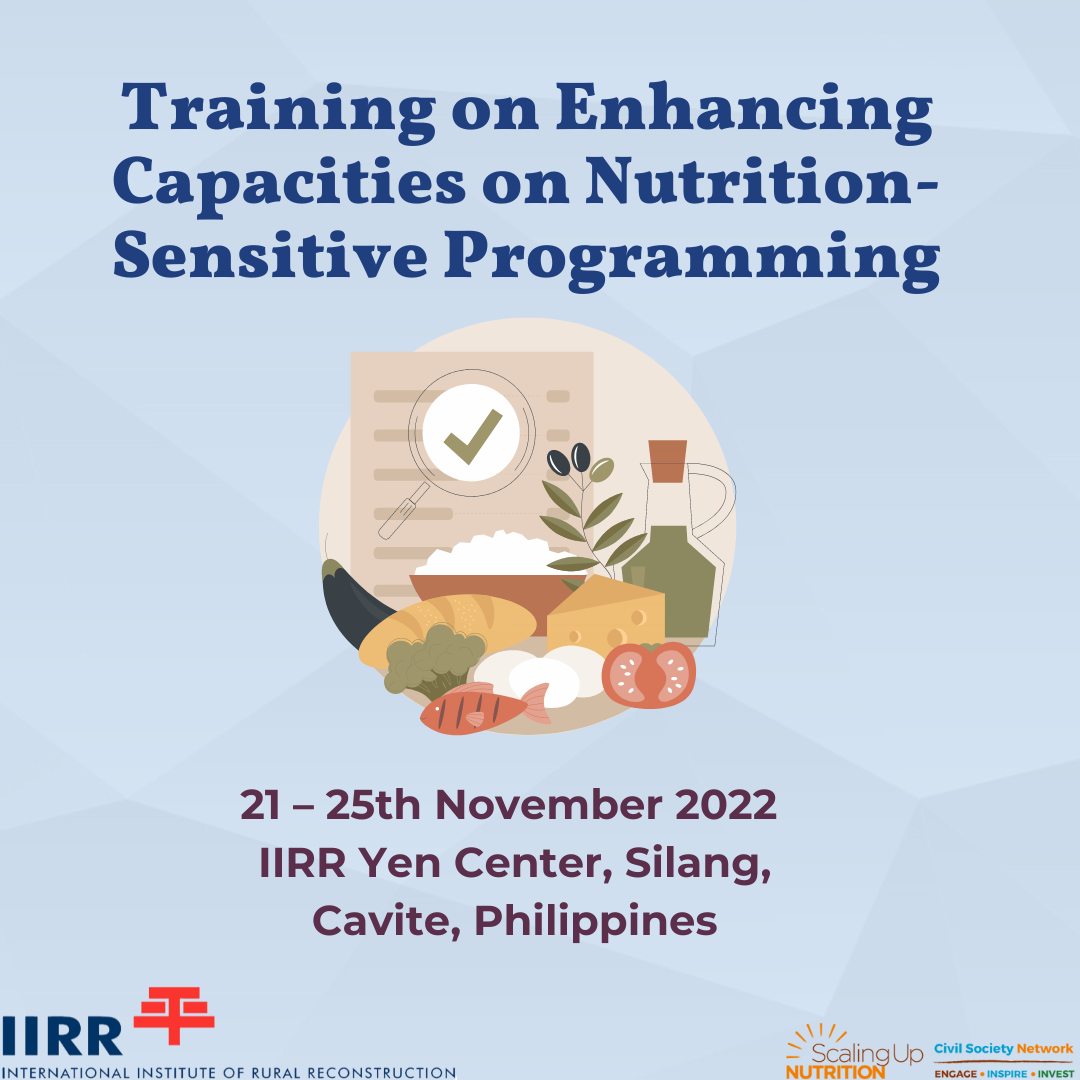In the margins of the N4G Summit, civil society organisations from across the world gathered for two days in the Civil Society Pavilion to confront pressing challenges in the nutrition landscape and shape a path forward. From these discussions, civil society united behind a set of key recommendations, with over a hundred organisations supporting this […]
LireToutes les infos Advocacy
Sélectionnez les sujets qui vous intéressent pour filtrer les articles.
The Countdown to N4G.. where will the SUN CSN be?
The countdown to the Nutrition for Growth Summit 2025 in Paris is on! And it would not be the same without the participation of the SUN Civil Society Network (SUN CSN). So where will we be and what are we doing in Paris? Click here to find out all the answers
LireCountdown to N4G: It is Time to Mobilize Your Decision-Makers!
The upcoming Nutrition for Growth (N4G) Summit 2025 in Paris presents a pivotal moment for SUN Civil Society Network (SUN CSN) members to shape the global nutrition agenda. Governments, donors, and stakeholders will convene to make commitments that could transform the fight against malnutrition. To help civil society alliances (CSAs) maximize this opportunity, the SUN […]
LireCSN Celebrates N4G Progress Reporting
Since 2013, Nutrition for Growth (N4G) Summits have catalysed global commitmentsto improve nutrition. In July 2024, all commitment-makers from the 2021 TokyoSummit were tasked to report on their progress. Click here to read our blog celebrating CSN’s progress reporting against our own N4G commitments ahead of the upcoming N4G Summit in France 2025.
LireCSN marks 2 years on the Nutrition for Growth (N4G) Summit
On the 2nd anniversary of the Nutrition for Growth (N4G) Summit hosted in Tokyo on 7 December 2021, where USD $27 billion were pledged to reduce global malnutrition, civil society leads by example in reporting on progress. Alexandra Newlands, Head of SUN CSN wrote a blog celebrating CSN’s progress against its own commitments with a […]
LireOur collective ambitions for the well-being of People and Planet: Sustainable, equitable and nourishing food systems for all
As the UN Food Systems Summit+2 Stocktaking moment united world leaders, experts, and stakeholders to confront food systems challenges, we recognized a pivotal opportunity to shape a brighter, healthier future for all. As a result of this 3-days Summit, a Call to Action for accelerated Food Systems Transformation was issued. Unfortunately, this statement fell short […]
LireEmpowering local voices at the Micronutrient Forum 6th Global Conference: A critical role in shaping the global agenda on nutrition resilience
By Alexandra Newlands, Head of the Scaling Up Nutrition Civil Society Network & Irshad Danish, Senior Advocacy Adviser at Nutrition International, and Chair of the Scaling Up Nutrition Civil Society Network With the contributions of Tanuja Rastogi, Director of Advocacy & Communications, Micronutrient Forum At the forefront of our journey towards a healthier and more […]
LireCall to embed corporate accountability in the UN food systems stocktaking process
Our current food system is failing millions around the world. 828 million people go hungry every day whilst over 3 billion cannot afford a healthy diet. Moreover, food systems remain the number one transgressor of our planetary boundaries. Ongoing conflicts, extreme weather patterns and soaring food prices haven’t made it easier. Increased investments estimated around […]
LireNutrition Sensitive training in the Philippines – A Tale of Experience
A photoblog by Georgine Obwana – CSA Uganda In this ever-changing world, it is necessary to keep updating yourself, your knowledge, and your intellect, to keep up with the continuous growth and development taking place. This is exactly why the one week blended international course on Enhancing Capacities on Nutrition – Sensitive programing (NSP) has […]
LireThe Small Grants Programme Report is here!
Since 2018 SUN CSN has run a small grants programme, which invites interested & eligible CSAs and their members to apply for small grants, to implement and pilot small projects for research or innovation purposes over a 6-month period. Between 2018 – 2022 The SUN CSN Small Grants Programme has run four cycles of funding […]
LireEnvoyer un article
Si vous êtes membre d’un Réseau de la société civile SUN et que vous souhaitez partager un article, envoyez-le en remplissant le formulaire de contact et en sélectionnant « Envoyer un article » dans la section « Motif du contact » afin que nous puissions le lire et le publier.
Since 2018 SUN CSN has run a small grants programme, which invites interested & eligible CSAs and their members to apply for small grants, to implement and pilot small projects for research or innovation purposes over a 6-month period.
Between 2018 – 2022 The SUN CSN Small Grants Programme has run four cycles of funding each with a specific theme:
- The Innovation & Research Fund
- The Innovation & Research Youth Fund
- The MEAL & Sustainability Fund
- The Youth Leadership Grants
You can read the full report now! Available in French, English and Spanish.

